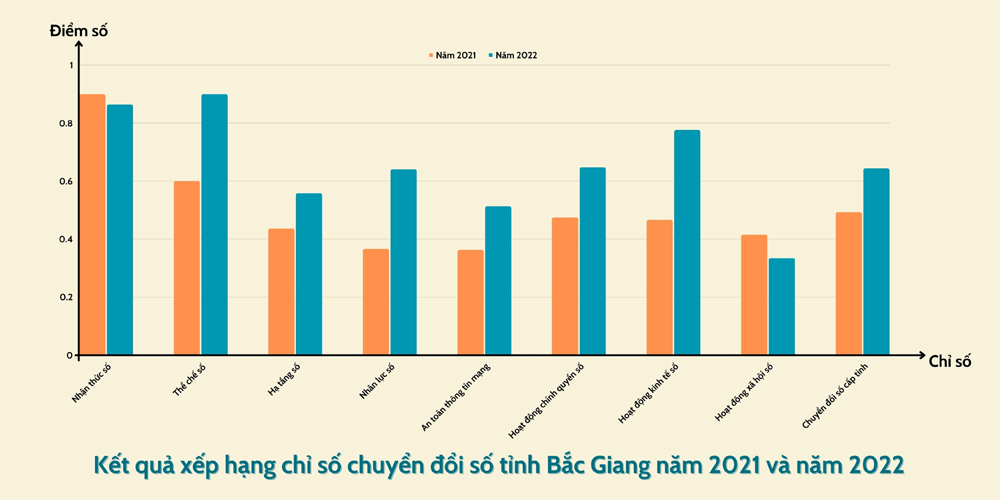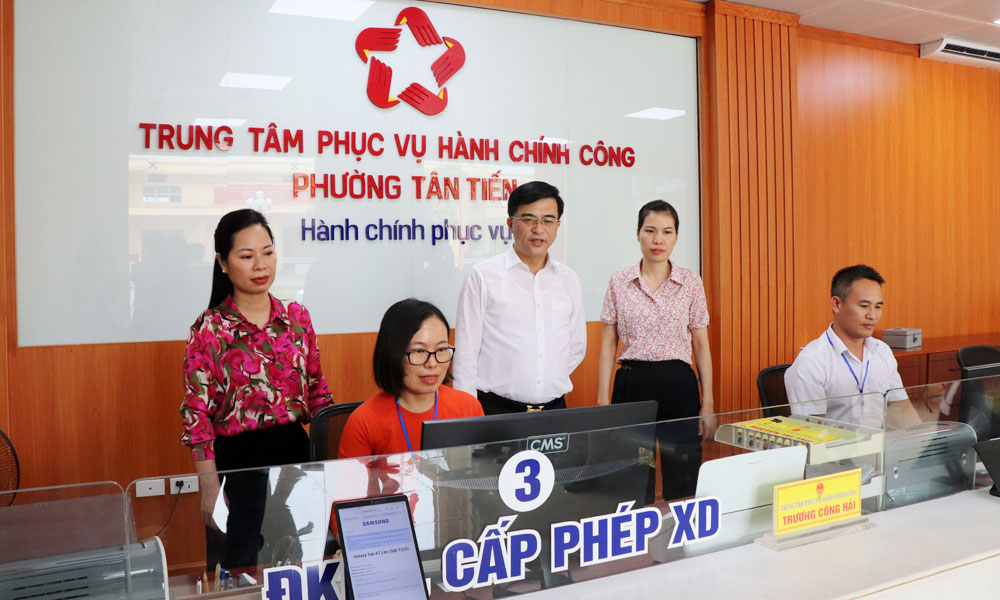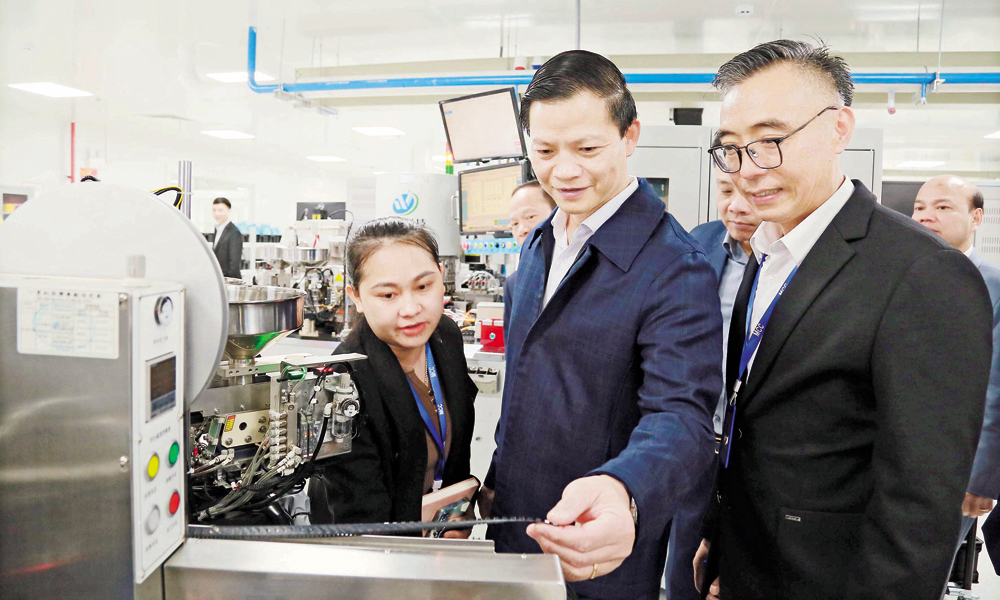Bac Giang accelerates digital transformation
On June 11, 2021, the Executive Board of the Provincial Party Committee issued Resolution No. 111/NQ-TU on the digital transformation of Bac Giang province in 2021-2025 period with the vision till 2030.
 |
|
The ranking of digital transformation index of Bac Giang province in 2021 and 2022. |
The province set 14 basic goals that need to be prioritized in implementation, focusing on building digital government, digital economy, digital society and digital citizens in a comprehensive and effective way while assigning specific tasks to departments, branches and units to preside and coordinate in execution within specific time for completion.
With many synchronous and positive solutions, up to now, 9 out of 14 targets have been continuously completed and exceeded; 5 targets are being implemented.
Prominently, all the databases that create the foundation for developing e-government and digital transformation in the province have been connected and shared. The data of state agencies are open to provide timely public services. The citizen and business can enjoy the life cycle service once they make the declaration toward socio-economic development.
The Bac Giang Province’s Local Government Service Platforms (LGSP) has connected and shared data from the province's software and databases with ministries and branches through the national Government Service Platforms (NGSP).
The province deployed applications of 15 national digital platforms; integrated all 25 essential public services into the National Public Service Portal; stably operated the field reflecting system and the socio-economic synthesizing system of the province.
Meanwhile, the province effectively operated the Smart Urban Monitoring and Operation Center of Bac Giang province. The provincial digital data base has integrated and stored databases from specialized databases; processed and cleaned data to form 7 shared databases of the province.
Bac Giang is also one of the top leading localities in digital infrastructure index in Vietnam.
The province's digital economy in 2023 accounted for 42.13 percent of total Gross Regional Domestic Product (GRDP) in the province, exceeding more than 17 percent of the set target.
During the year, the province established 414 new digital enterprises, bringing the total number to 1,059 digital enterprises. All businesses use and exploit electronic invoices.
E-commerce activities in the province are increasingly developing. The whole province has nearly 100 businesses, cooperatives and farmer households with strong, key, typical and OCOP products participating in the e-commerce platform Postmart.vn.
In the digital society pillar, the province has widely deployed non-cash payments at traditional markets, shopping centers and essential public services such as electricity, water, tuition, hospital fees and handling fees for administrative procedures...
Up to now, awareness of digital transformation at all levels, sectors, people and businesses in the province has been raised significantly.
 |
|
Standing Vice Chairman of the Provincial People's Committee Mai Son visits the digital technology booth at the 2023 Digital Transformation Festival. |
For three consecutive years (2020, 2021, 2022), Bac Giang province has ranked in the top 10 provinces and cities in the country in terms of digital transformation index, exceeding the target at the provincial Party Committee’s Resolution No. 111-NQ/TU dated June 11, 2021 that set the goal of top 15 leading provinces and cities in the country.
Toward comprehensive and effective digital transformation in all fields, in the coming time, the province will focus on leading and implementing digital transformation synchronously at all levels and sectors; promoting the roles and responsibilities of leaders in leadership, direction so as to improve the effectiveness of digital transformation.
Also, the province focuses on completing mechanisms and policies to promote the digital transformation; developing human resources to serve the digital transformation process; prioritizing resources from the budget, mobilizing resources from businesses, private individuals and other legal resources for the digital transformation.
 Bắc Ninh
Bắc Ninh















Reader's comments (0)